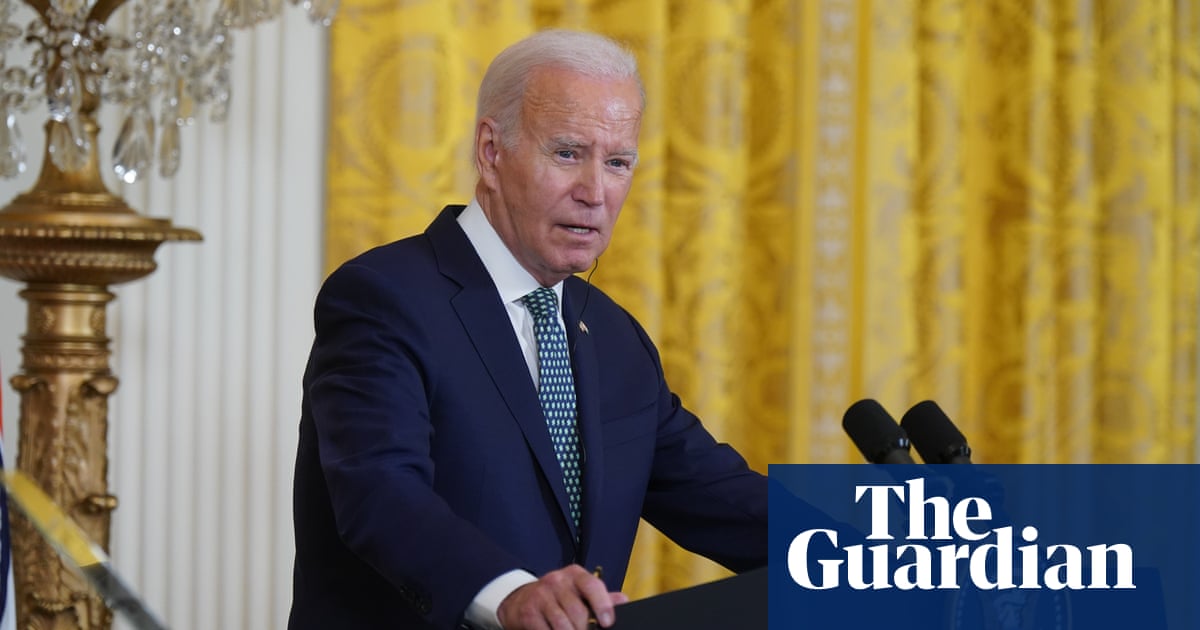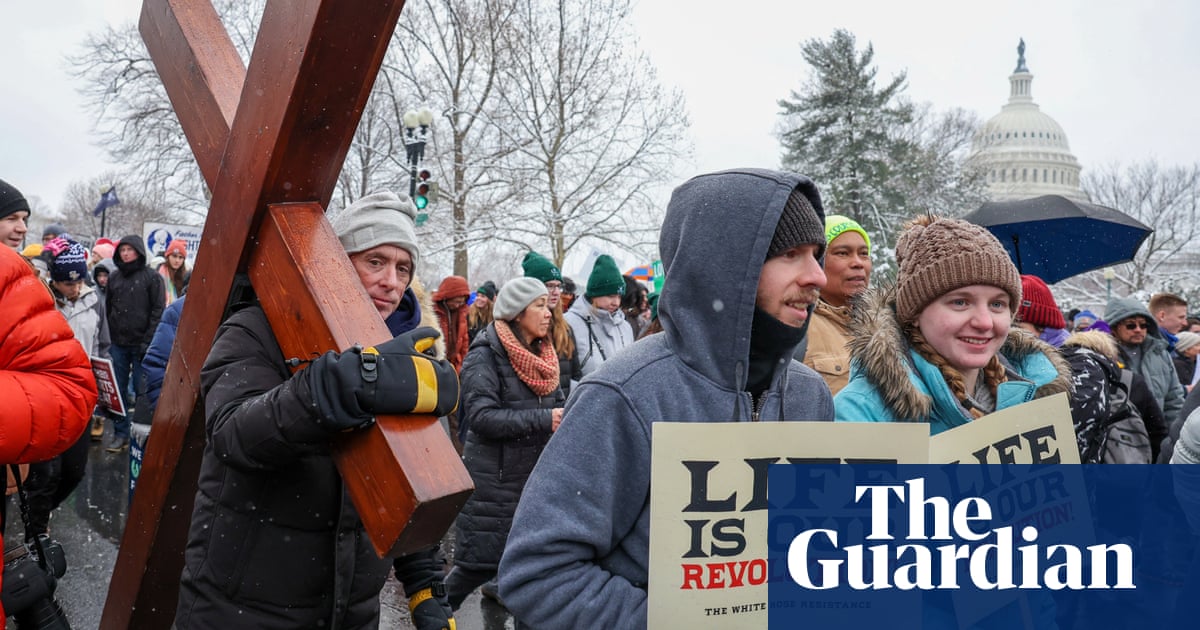
Joe Biden on Friday put reproductive rights squarely in the middle of his 2024 re-election campaign as the US president hosted a rally based around defending abortion rights, notched three high-profile endorsements from groups dedicated to the issue, and announced an executive order aimed at boosting access to contraception.
The moves came in stark contrast to the Republican field of candidates, many of whom were attending the Faith & Freedom Coalition annual conference in Washington DC.
Abortion has become a tough issue for Republicans because most Americans support the right to an abortion after the conservative-dominated US supreme court last year axed the federal right to terminate a pregnancy.
Nonetheless, former vice-president Mike Pence on Friday doubled down on his hardline stance in a speech calling for national restrictions on abortion – a position seen as unlikely to win much wide support. Pence’s former boss Donald Trump will address the same conference on Saturday and has in recent weeks sought to take a less extreme stance.
Biden and the Democrats, meanwhile, are on the attack on abortion, pointing out the huge loss of reproductive freedoms for millions of women since the US’s highest court overturned the landmark Roe v Wade decision that had protected abortion freedoms.
Biden and Vice-President Kamala Harris on Friday were being endorsed by Planned Parenthood Action Fund, Naral Pro-Choice America and Emily’s List. The groups are throwing their early support behind the re-election effort in part to highlight the importance of the issue for Democrats heading into the election year, the groups’ leaders told the Associated Press.
“I think that President Biden has been an incredibly valuable partner, along with Vice-President Harris, in fighting back against the onslaught of attacks that we have seen,” said Alexis McGill Johnson, president and chief executive of Planned Parenthood Action Fund.
Biden and fellow Democrats have already seen the power of the issue: a majority of Americans want legalized abortion nationwide. In the lead-up to the 2022 midterm elections, many political pundits dismissed the issue, but it was among the top concerns for voters, who consistently rejected efforts to restrict abortion in the states when given the chance.
Biden’s campaign manager, Julie Chavez Rodriguez, said the president and the vice-president were proud to have earned the support of the groups. Since the decision last year by the supreme court, “we have seen the horrifying impact that the extreme Maga agenda has on women’s health,” she said, referring to Trump’s “Make America Great Again” slogan.
Biden has said he will work to protect reproductive health care, including enshrining abortion rights in federal law. He is expected to convey that message in remarks on Friday at a rally with the first lady, Jill Biden, Harris and the second gentleman, Doug Emhoff.
Meanwhile, Biden’s executive order aims to strengthen access to contraception, a growing concern for Democrats after some conservatives have signaled a willingness to push beyond abortion into regulation of contraception. In 2017, nearly 65% – or 46.9 million – of the 72.2 million girls and women age 15 to 49 in the US used a form of contraception.
In a statement, Biden highlighted reproductive health as a top priority of his administration in the wake of the Dobbs v Jackson Women’s Health Organization ruling from the conservative-led court that reversed Roe v Wade.
“Contraception is an essential component of reproductive health care that has only become more important in the wake of Dobbs and the ensuing crisis in women’s access to healthcare,” Biden said.
Biden is seeking to strengthen access to “affordable, high-quality contraception and family planning services”, the statement added. It’s his third executive order on reproductive health care access since the Dobbs ruling.
The measures include expanding access and services through Medicaid, improving coverage of contraception through Medicare and seeking ways to compel private health insurance companies to provide contraception and family planning services as needed.
The consequences of restricting abortion access in America have quickly moved beyond ending an unwanted pregnancy into miscarriage and pregnancy care in general.
Women in states with tight restrictions are increasingly unable to access care for pregnancy-related complications. Doctors facing criminal charges if they provide abortions are increasingly afraid to care for patients who aren’t sick enough yet to be considered treatable.
Over the last year 22 US states have passed either a ban or highly restrictive policies on abortion. Other states, though, have expanded access to abortion care. The Biden administration has brought together leaders from all 50 states to talk strategy on how to expand access and work together to help people in more restrictive states.
Most of the states with severe abortion restrictions are also states that have a high maternal mortality rate and higher rates of stillbirth and miscarriage. Black women are disproportionately affected – they are more than three times more likely to die from pregnancy-related causes than white women, according to the US Centers for Disease Control and Prevention.












